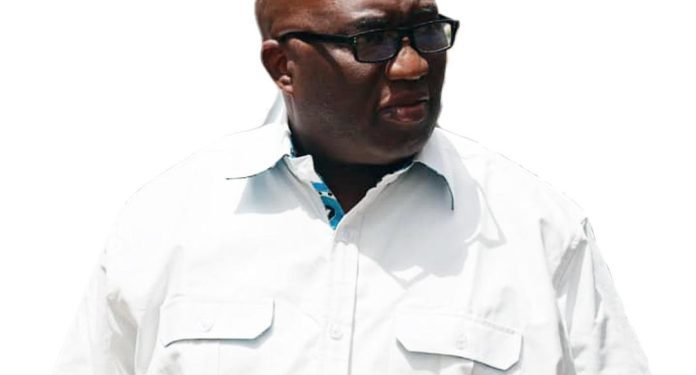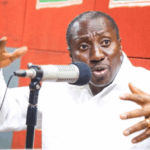Former Railways Development Minister Joe Ghartey has doubled down on his assertion that Ghana’s stalled Sky Train Project followed legal and procedural guidelines, insisting no taxpayer money was expended during his oversight.
His remarks came after a closed-door meeting with the National Investigation Bureau (NIB) on Monday, part of a broader probe into the controversial initiative.
Addressing journalists in Accra, Ghartey clarified that the project, proposed in 2019 to ease congestion in Greater Accra, was structured as a Build, Operate, and Transfer (BOT) agreement. Under this model, he stressed, the government was not liable for upfront costs, feasibility studies, or construction. “Every step was taken to shield the state from financial risk,” he said, referencing a 2021 Auditor-General’s report that flagged the project’s lack of progress but confirmed no payments were made by his ministry.
“The agreements explicitly absolved the Railways Ministry of financial obligations. My conscience is clear, and I fully cooperated with the NIB to provide clarity,” Ghartey stated. His defense follows similar scrutiny of Professor Ameyaw Ekumfi, former Board Chairman of the Ghana Infrastructure Investment Fund (GIIF), who was also questioned over the project’s contractual framework.
The Sky Train, a $2 billion elevated rail system proposed by South African firm AiSkyTrain, has faced skepticism since its inception. Critics argue the project prioritized ambition over practicality, citing unresolved financing and feasibility gaps. While Ghartey maintains the BOT model protected public coffers, analysts question why the deal advanced without clearer guarantees of private investor commitment.
“A BOT arrangement is only viable if private partners have skin in the game,” said infrastructure policy expert Dr. Nana Ama Boateng. “Without transparent timelines or binding investment pledges, such projects risk becoming political headlines rather than tangible solutions.”
The NIB’s investigation, though yet to release findings, underscores mounting pressure to address accountability in large-scale infrastructure ventures. For now, the Sky Train remains grounded, with no concrete progress since 2021. Public reaction remains divided: some laud Ghartey’s fiscal caution, while others dismiss the project as a “glittering promise” that diverted attention from more urgent transport needs.
As the probe continues, Ghartey’s statements aim to preemptively counter allegations of mismanagement. Yet, the broader debate lingers: in a nation grappling with infrastructure deficits, can high-profile, privately-led projects deliver—or do they merely kick accountability down the track?
- President Commissions 36.5 Million Dollars Hospital In The Tain District
- You Will Not Go Free For Killing An Hard Working MP – Akufo-Addo To MP’s Killer
- I Will Lead You To Victory – Ato Forson Assures NDC Supporters
Visit Our Social Media for More





